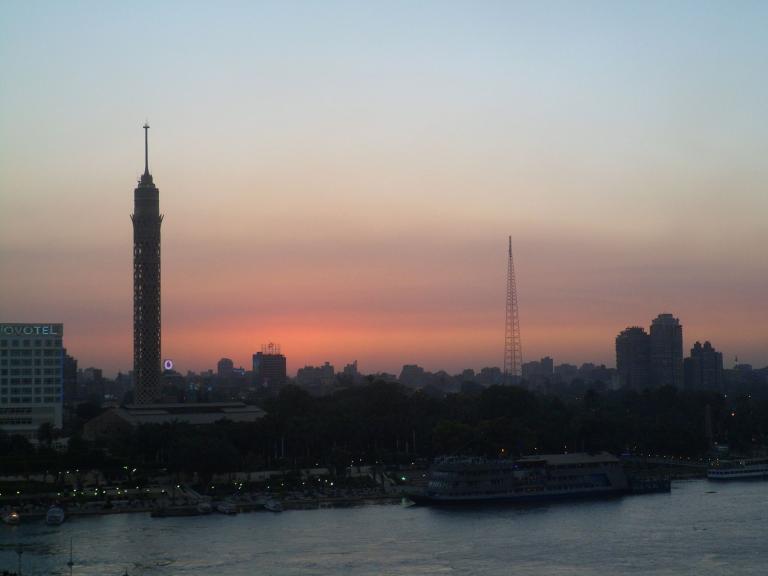
(It’s slightly weird, by the way, to speak of “Gezira Island” in English, since “Gezira” is simply the Arabic equivalent, pronounced in the dialect of Lower Egypt, of English “island.”)
Many, many years ago, when I was in a high school civics course of some kind, our class was dragged off to the Los Angeles County Courthouse, where we were obliged to listen to part of a trial. The one that was chosen for us concerned an alleged instance of medical malpractice in brain surgery.
A neurosurgeon was on the witness stand, and the plaintiff’s lawyer was badgering him to answer some question or other. I don’t recall what it was, but the neurosurgeon — who was an expert witness, not the defendant — kept responding that the present state of the relevant science didn’t permit him to give a confident either/or answer to the question. The attorney persisted, and then, eventually, the judge stepped in. He ordered the neurosurgeon to either answer the question Yes or No or face jail time for contempt of court. “But I can’t answer the question so simply or definitely,” the rather desperate neurosurgeon responded yet again.
Our class had to leave at that point, and I never heard what the upshot of that episode was, nor the verdict for the case as a whole. In any event, it left me very unimpressed. And, if I’m not mistaken, there was a news report several months later that somebody had firebombed the judge’s car. I can’t say that I found that altogether surprising. He struck me as a first class jerk.
It is wrong to demand from science what it cannot give.
***
What will happen when nobody believes in free will any more?
I suppose that the best answer to that question would be that what happens will be what had to happen. There’s no way out of it; it was all set at the Big Bang, if not before.
Still, as they were fated to do billions of years ago, Azim Shariff (University of Oregon) and Kathleen Vohs (University of Minnesota) published an article in the June 2014 issue of Scientific American that considers “The world without free will: What happens to a society that believes people have no conscious control over their actions?”
They take no position on the actual question of whether or not human freedom is illusory. They simply want to know how people, if convinced that it is, will react.
And their findings, while slightly encouraging in one area, are mostly frightening.
People who believe that free will is an illusion, or who even tend to assign a higher than average role to the neurochemical condition of the physical brain in human decisions, are inclined to be less punitive, less judgmental.
That’s the good part.
Now for the bad part.
Participants in scientific experiments who’ve just read a strongly anti-free-will passage seem to show a significantly greater tendency (50%!) than their fellow participants to cheat on academic tests. Other experiments showed a higher tendency to cruelty among readers of such passages, and decreased impulse control.
Many neuroscientists and philosophers are currently waging war on the concept of free will. (One wonders whether they imagine themselves to have freely chosen their position on the subject, and how they conceive the notion of “persuading” their unfree readers and critics.)
To the extent that they’re successful, contend Shariff and Vohs, our justice system might become kinder, more compassionate and understanding. But their success might also lead to anarchic lawlessness and the overall breakdown of society.
“More likely,” they conclude, “is the third possibility. In the 18th century Voltaire famously asserted that if God did not exist, we would need to invent him because the idea of God is so vital to keeping law and order in society. Given that a belief in free will restrains people from engaging in the kind of wrongdoing that could unravel an ordered society, the parallel is obvious. What will our society do if it finds itself without the concept of free will? It may well reinvent it.”
Posted from Cairo, Egypt










